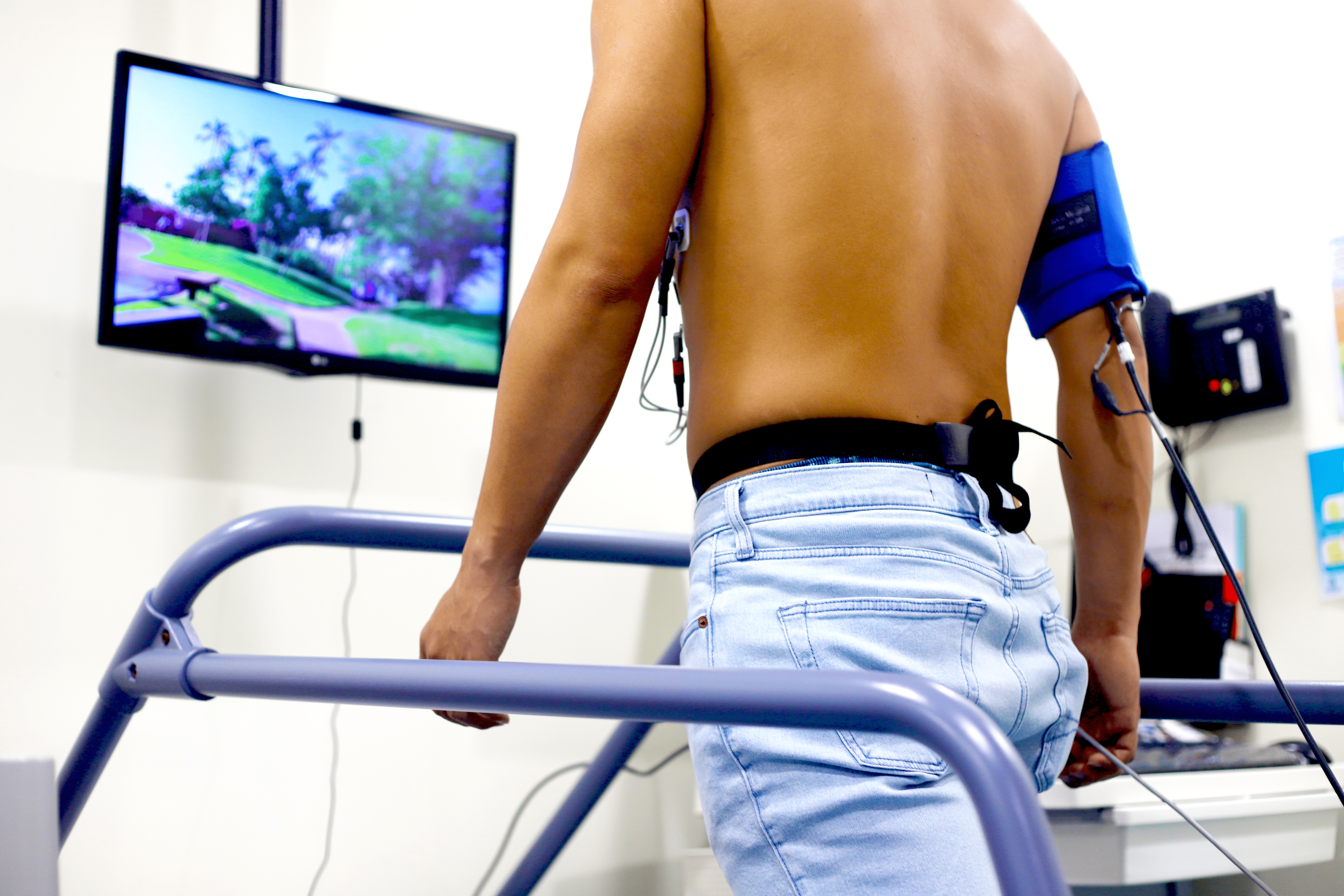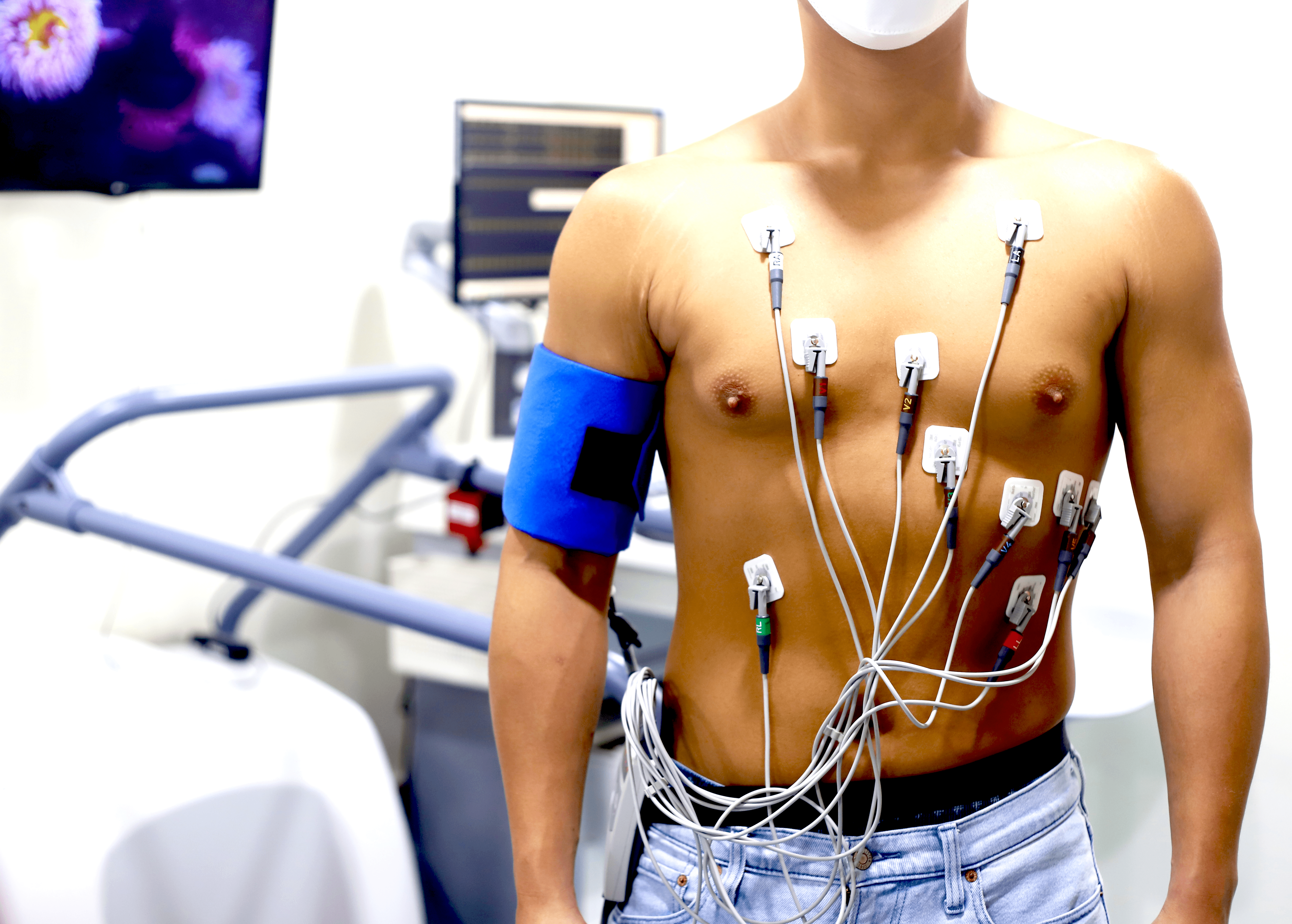Exercise Treadmill
Exercise Treadmill | Hong Kong Asia Heart Centre
This test helps doctors:
- Assess for heart disease, especially for diagnosing coronary heart disease
- Physical evaluation for patients with heart disease
Suitability:
- It is suitable for everyone, unless the patient is having mobility impairment.
- Patients with chest pain during exercise, syncope or loss of consciousness.
Proccess:
- When the test starts, you will be walking on the treadmill at a slow speed. Every 2 to 3 minutes you will have to walk faster and more uphill. The treadmill will stop if your heartbeat reaches a certain rate, if you become very short of breath, having chest pain or if the doctor sees a problem with the rhythm of your heart.
- Your doctor and nurse will closely monitor your ECG and blood pressure during the investigation.
- After you have walked on the treadmill, you will be monitored for 15 to 20 minutes. You need to stay in the test area before your blood pressure and the heart rate return to normal level.
Charge:
Exercise Treadmill $2,700
Exercise Treadmill + 35 items health check index $3,580 (Click here)
Benefits:
Treadmill is generally considered safe, especially since it is done in a controlled environment under the supervision of a trained medical professional.\
Risks:
There are some rare risks, such as chest pain, collapsing, fainting, heart attack, irregular heartbeat. However, your risk of experiencing these reactions during the test is low, since your doctor will assess you before the test. People risked of these complications such as those with advanced coronary heart disease are rarely asked to do the test.
Reference:
Stuart RJ Jr, Ellestad MH. National survey of exercise stress testing facilities. Chest. 1980;77(1):94 97..
This test helps doctors:
- Assess for heart disease, especially for diagnosing coronary heart disease
- Physical evaluation for patients with heart disease
Suitability:
- It is suitable for everyone, unless the patient is having mobility impairment.
- Patients with chest pain during exercise, syncope or loss of consciousness.
Proccess:
- When the test starts, you will be walking on the treadmill at a slow speed. Every 2 to 3 minutes you will have to walk faster and more uphill. The treadmill will stop if your heartbeat reaches a certain rate, if you become very short of breath, having chest pain or if the doctor sees a problem with the rhythm of your heart.
- Your doctor and nurse will closely monitor your ECG and blood pressure during the investigation.
- After you have walked on the treadmill, you will be monitored for 15 to 20 minutes. You need to stay in the test area before your blood pressure and the heart rate return to normal level.
Charge:
Exercise Treadmill $2,700
Exercise Treadmill + 35 items health check index $3,580 (Click here)
Benefits:
Treadmill is generally considered safe, especially since it is done in a controlled environment under the supervision of a trained medical professional.\
Risks:
There are some rare risks, such as chest pain, collapsing, fainting, heart attack, irregular heartbeat. However, your risk of experiencing these reactions during the test is low, since your doctor will assess you before the test. People risked of these complications such as those with advanced coronary heart disease are rarely asked to do the test.
Reference:
Stuart RJ Jr, Ellestad MH. National survey of exercise stress testing facilities. Chest. 1980;77(1):94 97..
Share



